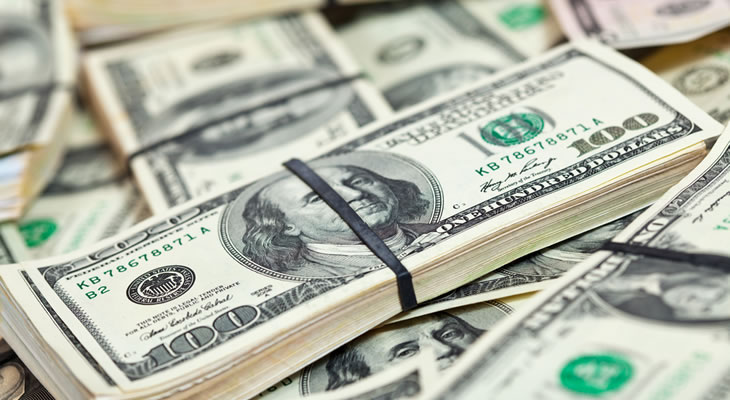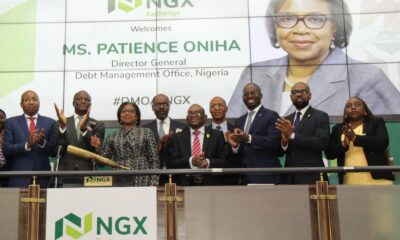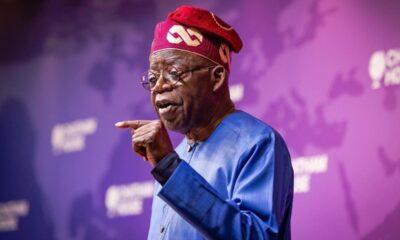- External Debt Rises by $15.3bn Under Buhari
The nation’s external debt stock rose by 148 per cent in almost four years of the President Muhammadu Buhari administration, data from the Debt Management Office showed.
The external debt soared to $25.61bn on March 31, 2019 from $10.32bn on June 30, 2015, according to the DMO.
Eurobonds worth $10.87bn accounted for the largest chunk of the external debt, as it rose by 625 per cent from $1.5bn on June 30, 2015.
The debt owed to the World Bank rose to $8.90bn from $6.19bn in the period under review.
China, through its Export-Import Bank of China, is the third biggest lender to Nigeria with a loan of $2.55bn as of March 31, 2019, up from $1.39bn as of June 30, 2015.
Other lenders are African Development Bank ($1.25bn), African Development Fund ($834.18m), Arab Bank for Economic Development in Africa ($5.88m), Export Development Fund ($59.15m), Islamic Development Bank (15.51m) and the International Fund for Agricultural Development ($176.19m).
Bilateral debts from France (Agence Française de Développement), Japan (Japan International Cooperation Agency), India Exim Banking of India and Germany (KfW) stood at $366.07m, $74.63m, $26.46m and $171.79m, respectively.
Financial and economic experts, who spoke with our correspondent in separate interviews, described the $15.3bn increase in the nation’s external debt as a cause for worry.
A former Director- General, West African Institute of Financial and Economic Management, Prof Akpan Ekpo, said the country’s debt profile had been increasing at an alarming rate.
He said, “The increase in external debt is something to worry about even though we have not exceeded the threshold and that was because we rebased our GDP. But what should worry us more is our debt servicing, which is increasing at a rate that is not comfortable. We should be cautious how we borrow, and let us know what we are borrowing for.
“I am not in support of Eurobond because it’s commercial and it has a higher rate. The World Bank and the ADB loans are flexible; if you cannot pay, you can renegotiate and the rates are lower. The multilateral institutions are better than Eurobonds because they will give you a long period of repayment. But we have to be very careful with the Chinese loans because the Chinese are very shrewd negotiators.”
The Managing Director and Chief Executive Officer, Financial Derivatives Company Limited, Mr Bismarck Rewane, said, “Part of our external reserves is borrowed money. We have borrowed but let us see the projects that the borrowings have been used to accomplish. But if they cannot show us the completed projects, then we have a problem.”
The DMO said last month that the Federal Government would borrow $2.7bn from foreign sources this year, adding that it planned to first access cheaper funding from multilateral and bilateral lenders while any balance would be raised from commercial sources, which might include securities issuance such as Eurobonds in the international capital market.
“As long as it is to finance projects, it is a good decision. But if it is to finance consumption, then we are in trouble,” Rewane said.
The nation’s external reserves stood at $45.109bn as of July 15, 2019, according to the Central Bank of Nigeria.
A professor of Economics at the Olabisi Onabanjo University, Ago-Iwoye, Ogun State, Sheriffdeen Tella, who also raised concern over the significant increase in the external debt, said the government should be cautious about further borrowing.

 Forex2 weeks ago
Forex2 weeks ago


 Naira1 week ago
Naira1 week ago
 Naira4 weeks ago
Naira4 weeks ago
 Company News4 weeks ago
Company News4 weeks ago
 Billionaire Watch1 week ago
Billionaire Watch1 week ago




 Naira2 weeks ago
Naira2 weeks ago




 Naira1 week ago
Naira1 week ago




 Naira3 weeks ago
Naira3 weeks ago





















